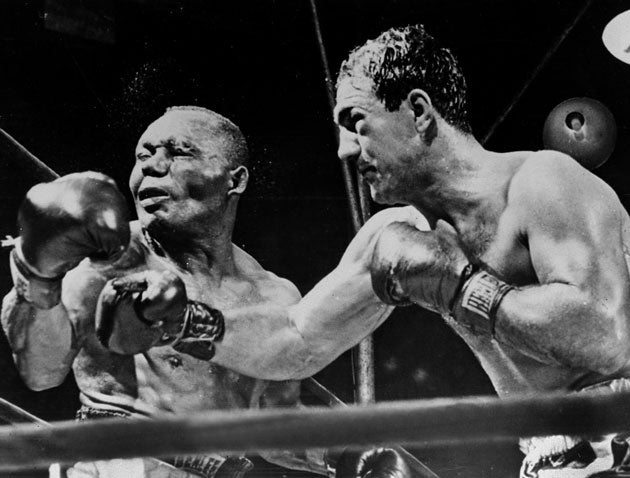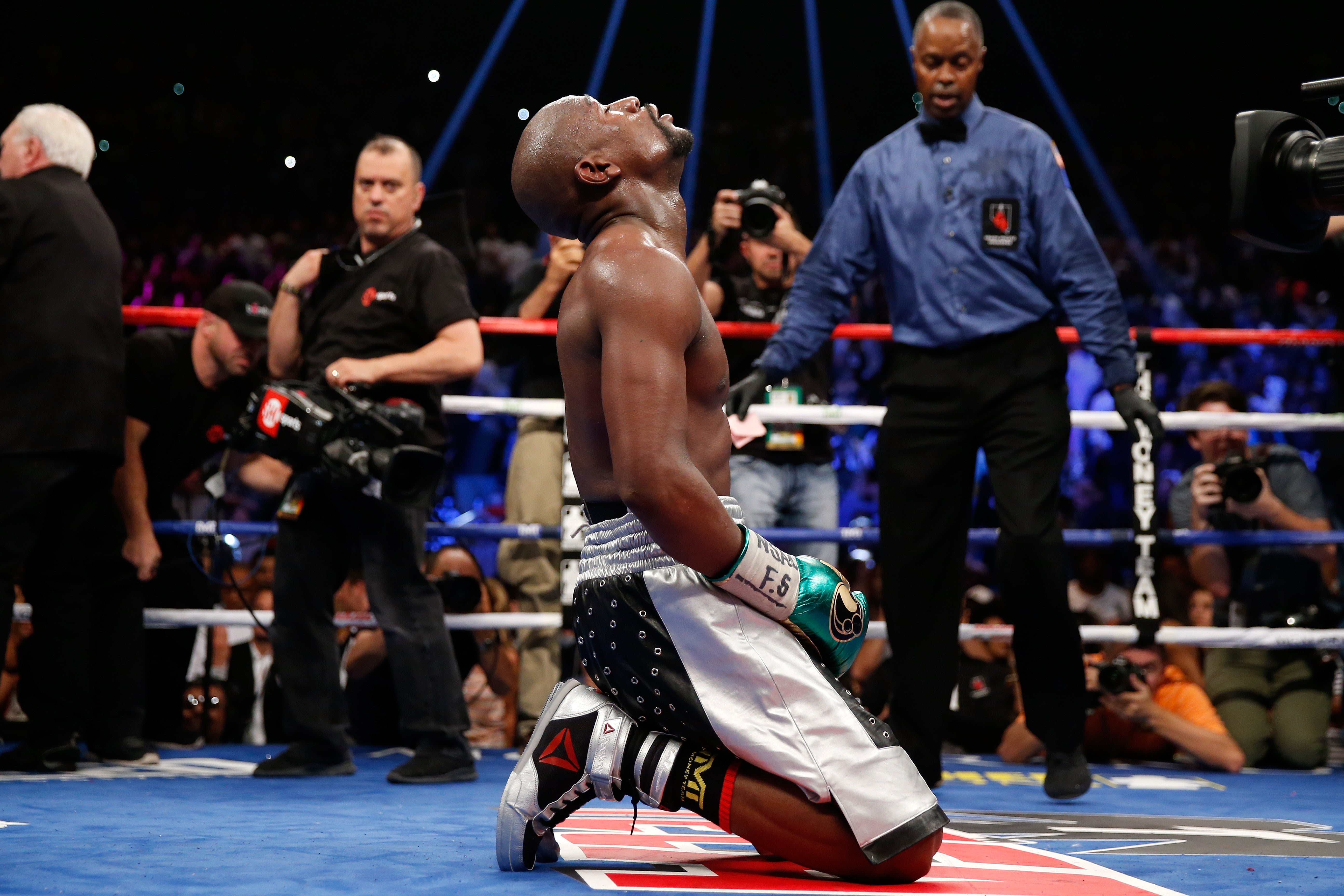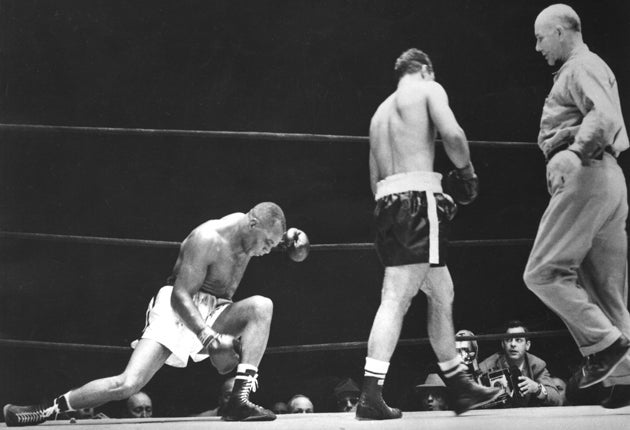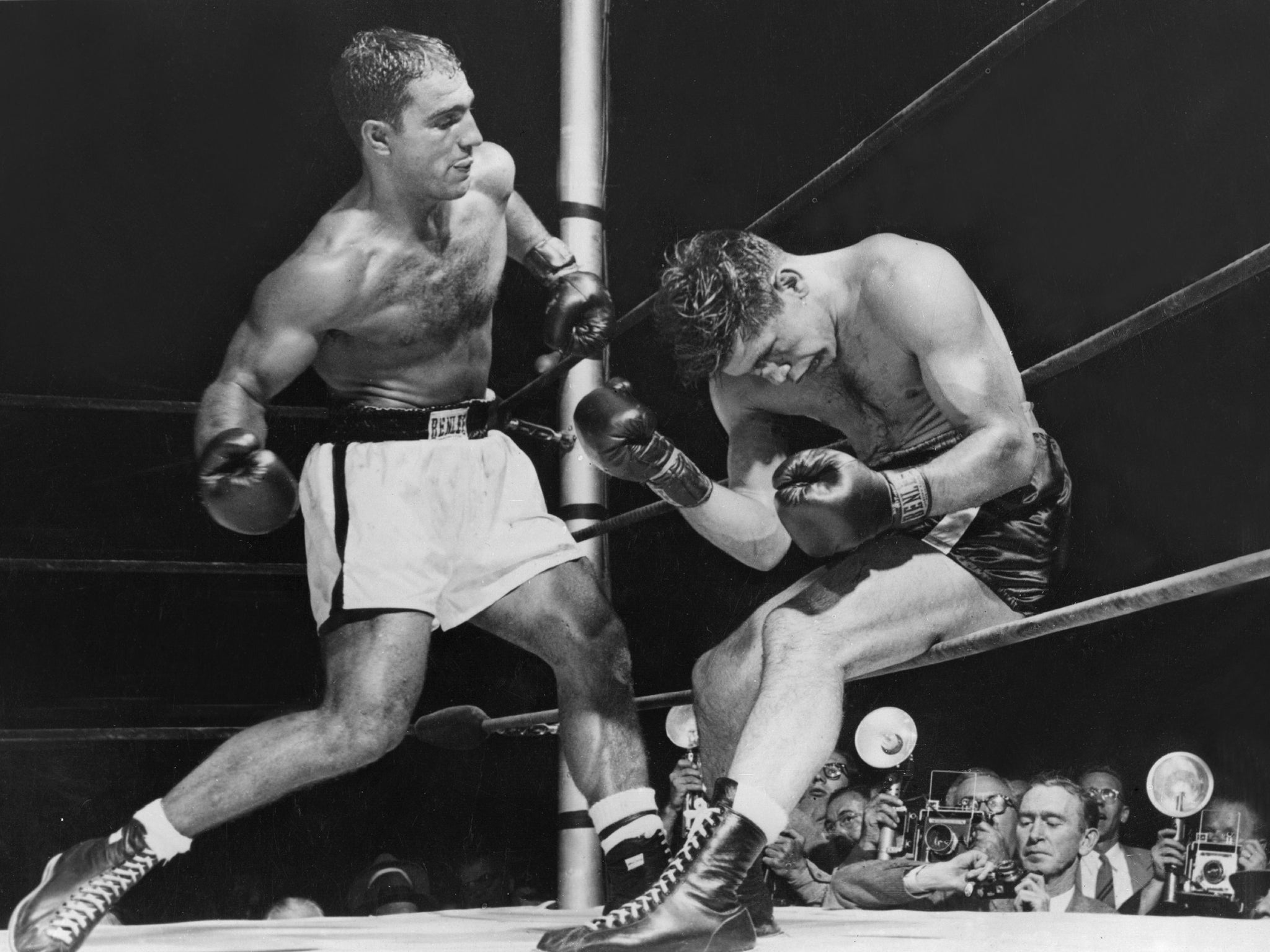Rocky Marciano’s record has been equalled but the love and awe he inspired will always leave him out of reach of others - Steve Bunce
STEVE BUNCE ON BOXING

An ancient fighter called Rocco Marchegiano left boxing in 1955 to eat, make sausages and spend time with a fella called Tommy Tomatoes.
Marchegiano’s fighting name was Rocky Marciano and until Saturday night he held one of sport’s finest records, having retired as world heavyweight champion after 49 fights without suffering a single defeat. He did, however, suffer in brutal fights in front of huge outdoor crowds that demanded blood and guts from the boxers they worshipped.
On Saturday night a juiced crowd of bored high rollers sipped ringside cocktails at the MGM in Las Vegas and watched Floyd Mayweather equal Rock’s record before announcing his own retirement. Make no mistake, Marciano would not have been a fan of Mayweather. “Champs are not meant to play safe with just a jab and a move,” said Marciano, probably in answer to a question about Muhammad Ali. “That’s not what champs do.” Ali and Marciano would end up friends after their crazy fight.

In all fairness, Marciano had no choice as a boxer, and once he stepped through the ropes his physical shortfalls were exposed: he was short, light, easy to cut, slow on his feet and predictable. He was also relentless and fearless, with a gift for public suffering in pursuit of his heavyweight dream. The fans loved him.
He filled outdoor venues in world title fights, with 61,574 at Yankee Stadium in New York for his Archie Moore fight and 47,583 in the same stadium for his first fight with Ezzard Charles. He bludgeoned forward, often cut, survived flash knockdowns and then had his hand raised in victory in seven world title fights before quitting to live, as they say, like a Don. He kept colourful company – Tommy Tomatoes was a real person – and he gained several stone eating as a guest in restaurants as his hair thinned and his popularity increased.
“He is nothing more than an amateur,” said Moore. “I have to be honest, he would not even be on Joe Louis’ Bum of the Month tour.” The Moore fight was particularly savage, with Marciano knocked over once and Moore on the canvas in a heap four times. Moore, by the way, sold the fight with his fabulous mouth and boasts.
Marciano won his first 16 fights by knockout, including 15 in three or fewer rounds, and he finished with 43 early stoppages or clean knockouts from 49 wins. Mayweather stopped 26 of his 49 victims and won his last seven fights on points over 12 rounds. Marciano only went to the 13th round or further twice: on one of those occasions he was cut, had been down and was trailing on points, and then in the 13th round found a punch, which he called Suzie Q, to knock out Jersey Joe Walcott in Philadelphia in 1952.

After the Moore fight in 1955, when Marciano was just 32 and 20 days, Marciano decided to retire from the sport; the offers to fight again started immediately, but Marciano refused all of the lucrative deals to put an end to his exile. In 1969 he was finally coaxed back, lost four stone and took part in a truly bizarre fight with Ali, who was in his own forced exile at that time.
The pair fought behind closed doors at a gym in Miami: it was filmed over 70 one-minute rounds, all carefully staged to limit the damage. Marciano bought an expensive new toupee for the fight, which looked like a “dead cat” according to Angelo Dundee, and Ali dislodged it repeatedly. The heavily choreographed fight, which had several possible endings, was released as a film in 1,000 cinemas in January 1970.
Sadly, Marciano never got to see the finished article because he died in a plane crash less than a month after the shoot. There was some concern inside Marciano’s grieving family that the film, called The Super Fight, would reflect badly on Marciano, who was 45 at the time. He had been repeatedly smeared with ketchup during the filming of various endings and when it was released the outcome had a familiar feel: Marciano is cut, dropped, trailing on points before knocking out Ali in round 13. “Our work is phoney, but our friendship has become real,” said Ali.

Last weekend Mayweather reached Marciano’s magic number and next year, no doubt, he will surpass the figure. However, the love, awe and respect that Marciano enjoyed are impossible to measure in simple digits and even Mayweather’s earnings of $700m fail to equal what the Rock was all about.
Join our commenting forum
Join thought-provoking conversations, follow other Independent readers and see their replies
Comments